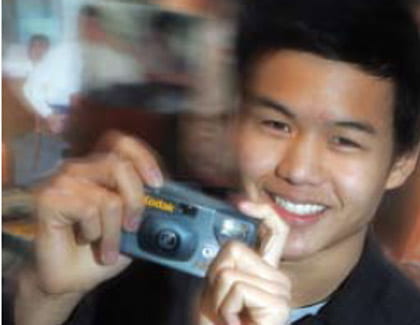Crowdsourcing is better predictor of celebrity deaths than chance or age, UCI research team finds
UC Irvine professor of cognitive sciences Michael Lee and colleagues discovered that the collective opinions of users of Ranker—a website that solicits crowd input on a variety of topics—predicted recent celebrity deaths better than individual users, chance or age.

Participating in a celebrity death pool is a pretty macabre way to pass the time, but when multitudes of people do it, the results can be fairly prescient. UC Irvine professor of cognitive sciences Michael Lee (pictured) and colleagues discovered that the collective opinions of users of Ranker—a website that solicits crowd input on a variety of topics—predicted recent celebrity deaths better than individual users, chance or age. Lee employed algorithms developed by his research team to analyze death-pool lists provided by 27 users. He found that 99 celebrities were included in at least one list, and at the time of analysis, six had passed away. Lee’s modeling included a tabulation of all 99 celebrities in an order that combined user rankings. The top five were Hugo Chavez (already a correct prediction), Fidel Castro, Zsa Zsa Gabor, Abe Vigoda and Kirk Douglas. “Successfully aggregating opinions is a cornerstone of prediction markets like the New York Stock Exchange, Intrade and the Hollywood Stock Exchange,” said Ravi Iyer, Ranker’s chief data scientist and Lee’s partner in the study. “Our preliminary success in predicting box office receipts and celebrity deaths leads us to believe that we can harness the wisdom of crowds to predict a whole range of future outcomes on our platform.” According to Lee, celebrity death pools are useful in the analysis of “crowd wisdom” because they can be assessed for their accuracy. “Predictions such as celebrity deaths do eventually have a ground truth, so we’re focusing our initial collaboration with Ranker on prediction lists,” he said.
